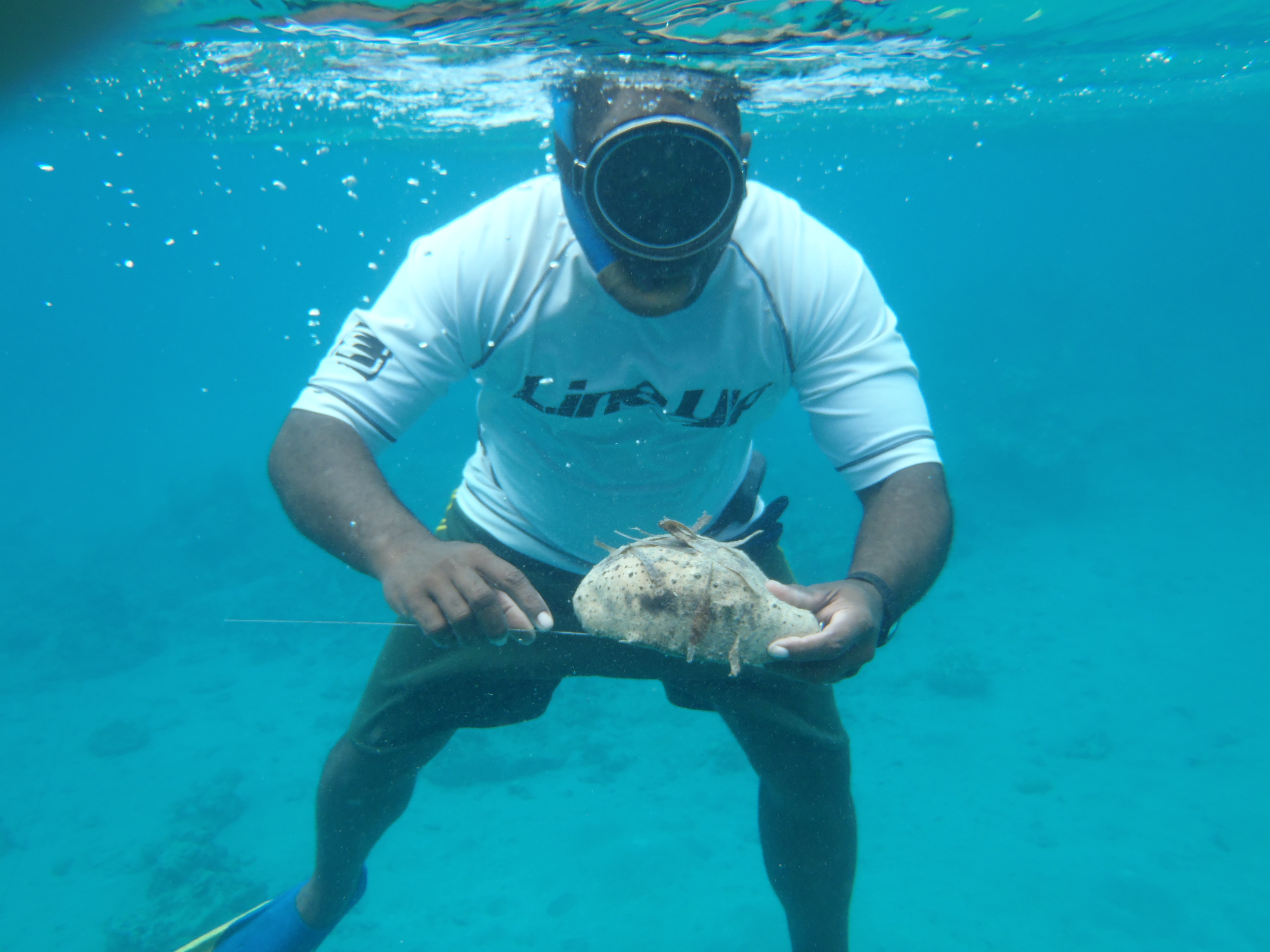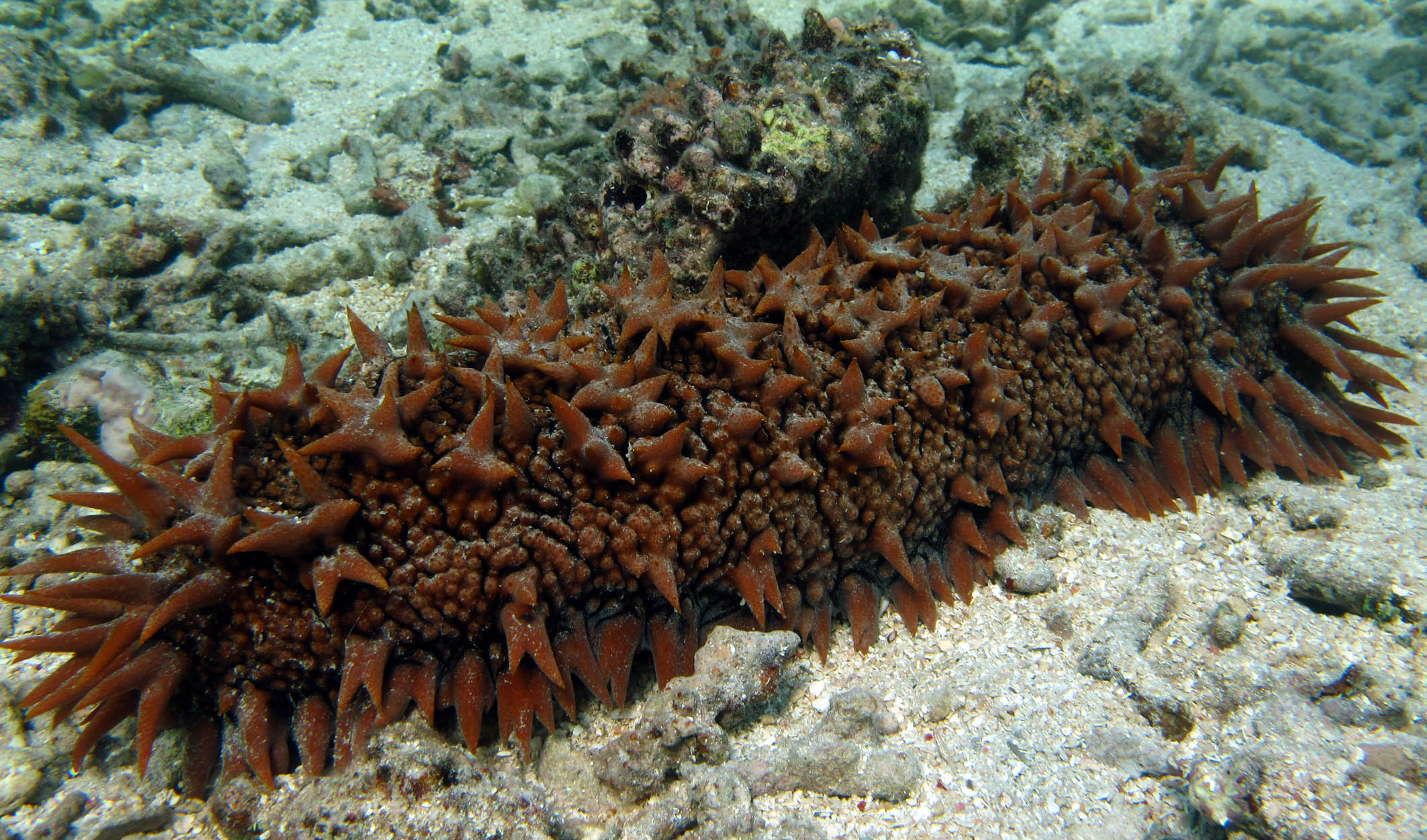« Gestion et gouvernance des pêcheries d’holothuries au Vanuatu et en Nouvelle-Calédonie »
« Management and governance of sea cucumber fisheries in Vanuatu and New Caledonia »
2010-2016, 223 000 €
Partenaires : IRD, Fisheries Departement of Vanuatu, province Nord de Nouvelle-Calédonie, Gouvernement de Nouvelle-Calédonie
Many small-scale sea cucumber fisheries have been declining worldwide at an alarming rate as a result of rapid overharvesting and inefficient management. As part of this research a common management strategy was developed for Vanuatu and New Caledonia’s Northern Province. This strategy was defined as part of an experimental initiative launched in 2008 in a small single-species fishery in New Caledonia and then generalized in multiple-species pilot fisheries at national level in Vanuatu.
Firstly, a local quota-based comanagement system was implemented in New Caledonia to manage a small-scale sandfish Holothuria scabra fishery. A habitat map derived from high-resolution satellite imagery was used to stratify survey sampling and assess the harvestable stock biomass. The latter has been monitored as the reference biomass since 2008 through a participative approach and repeatedly used by the local fishers’ organization and Fisheries Department officers to set adaptive total allowable catches and regulations of fishing effort. Results showed the excellent performance of this fishery between 2008 and 2012, both biologically and economically.
Secondly, the stock assessment method has been generalized to multispecies sea cucumber fisheries in Vanuatu since 2011 before the proposed lifting of a five-year national moratorium.
Based on the fisheries examined, we outlined an operational framework to inform sea cucumber fisheries policy in these two countries and discussed the up-scaling of the proposed management strategy. Four factors have driven the efficiency of the system: (i) spatial management and multi-level governance of fisheries; (ii) total allowable catches (TACs) per species and area, using participative monitoring surveys to estimate stock biomass; (iii) legal basis of management and governance arrangements, and (iv) technical and financial capacities of public Fisheries agencies.
However new challenges have emerged recently despite encouraging outcomes during the first years, which question again the sustainability of the fisheries.
Publications:
http://horizon.documentation.ird.fr/exl-doc/pleins_textes/divers15-01/010059037.pdf
https://umr-entropie.ird.nc/index.php/download_file/view/351/430
https://umr-entropie.ird.nc/index.php/download_file/view/352/430
Reports:
https://umr-entropie.ird.nc/index.php/download_file/view/354/430
https://umr-entropie.ird.nc/index.php/download_file/view/355/430
MSc report:
https://umr-entropie.ird.nc/index.php/download_file/view/325/430
Video:
https://www.ird.fr/la-mediatheque/videos-en-ligne-canal-ird/dans-un-esprit-de-cogestion
http://www.africultures.com/php/index.php?nav=film&no=16860
User-driven online database (for estimating stocks and allowable catches):


